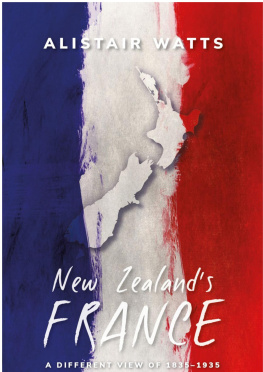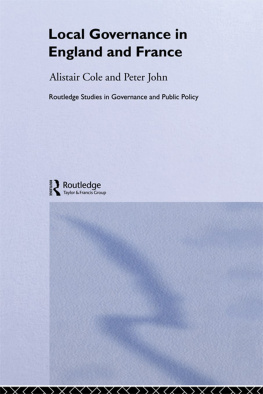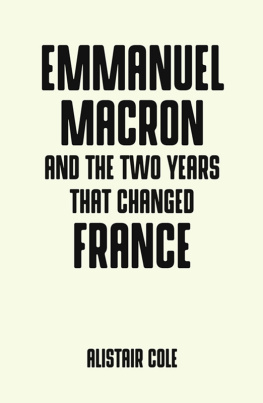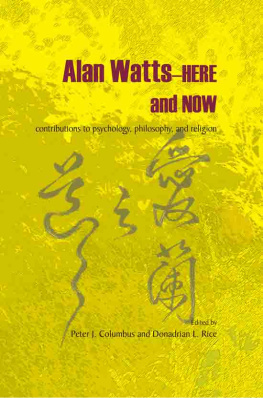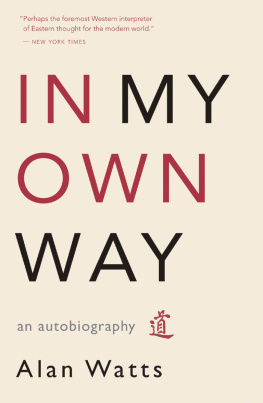Alistair Watts - New Zealands France: A Different View of 1835–1935
Here you can read online Alistair Watts - New Zealands France: A Different View of 1835–1935 full text of the book (entire story) in english for free. Download pdf and epub, get meaning, cover and reviews about this ebook. year: 2021, publisher: Aykay Publishing, genre: Romance novel. Description of the work, (preface) as well as reviews are available. Best literature library LitArk.com created for fans of good reading and offers a wide selection of genres:
Romance novel
Science fiction
Adventure
Detective
Science
History
Home and family
Prose
Art
Politics
Computer
Non-fiction
Religion
Business
Children
Humor
Choose a favorite category and find really read worthwhile books. Enjoy immersion in the world of imagination, feel the emotions of the characters or learn something new for yourself, make an fascinating discovery.
- Book:New Zealands France: A Different View of 1835–1935
- Author:
- Publisher:Aykay Publishing
- Genre:
- Year:2021
- Rating:5 / 5
- Favourites:Add to favourites
- Your mark:
- 100
- 1
- 2
- 3
- 4
- 5
New Zealands France: A Different View of 1835–1935: summary, description and annotation
We offer to read an annotation, description, summary or preface (depends on what the author of the book "New Zealands France: A Different View of 1835–1935" wrote himself). If you haven't found the necessary information about the book — write in the comments, we will try to find it.
New Zealands France: A Different View of 1835–1935 — read online for free the complete book (whole text) full work
Below is the text of the book, divided by pages. System saving the place of the last page read, allows you to conveniently read the book "New Zealands France: A Different View of 1835–1935" online for free, without having to search again every time where you left off. Put a bookmark, and you can go to the page where you finished reading at any time.
Font size:
Interval:
Bookmark:
Copyright 2021 Alistair Watts
Alistair Watts asserts his moral right to be identified as the author of this work.
All rights reserved. No part of this publication may be produced or transmitted in any form or by any means, electronic or mechanical, including photocopying, recording or information storage and retrieval systems, without permission in writing from the copyright holder.
Published by Aykay Publishing
Author contact: https://www.facebook.com/alistairwattsauthor/
The author has attempted to establish the copyright ownership of all the images used in this book. If there are errors, please email the publisher and these will be acknowledged and corrected.
A catalogue record for this book is available from the National Library of New Zealand.
For Karen, who waited patiently
This is the story of how the French became the others to the New Zealanders. Historians use the term othering to describe how one nation, tribe, social or culturally based group identifies themselves by seeing the others as different. The concept owes much to the ideas and writing of Edward Said. In his book Orientalism: Western Conceptions of the Orient, Said drew attention to the way one group can develop generalised ideas about the others. He had experienced being one of the others himself, because he was a naturalised American of Christian-Palestinian descent. His boyhood in the Middle East meant he had first-hand knowledge of a land that had been repeatedly conquered, colonised and traded, as if it were a possession of other nations.
Over time, generalisations about the others come to be seen as their defining characteristics. Edward Saids example was the exoticism of the East as it was seen by those who lived in the Western world. Notice that when we talk of the Eastern or the Western World or the western hemisphere or the Middle East and so on we use geographical divisions based on the assumption that London and Europe are at the centre of the world. Yes, Greenwich is in the United Kingdom but that is itself an arbitrary location for the meridian line that divides the eastern lines of longitude from those in the west. Edward Said argued that the Eastern world was characterised by the West as a place of intrigue, cruelty, eroticism, and any one of many other features that supposedly typified Eastern cultures. He pointed out that cultural points of view are taken from the perspective of the writer or person observing and describing them. In this case it was the Western historians, anthropologists and the like who were the observers. There was not necessarily deliberate malice or ill-will in their studies and observations, but they typically saw their own culture as normal and used that to reference the others who were therefore different or even incorrect. This is the process of othering; the development and definition of generalised ideas about the others who are different from us.
Taking this a step further, imagine you are comfortably at home in a Western-style household. A stranger arrives and knocks on the door, asking if they can have a look at your home. You know they are a stranger because their clothing, language, behaviour and perhaps skin colour tell you so. You politely let them in and stand bemused as they examine your dwelling. They leave, only to return with some experts who start to forensically examine not only you and your family but your culture, your religion and your daily habits. They measure, they sketch, they record and they film. You have ceased to be another human; you are now an unwitting participant in their study. You are an object, a data point, one of the others to be studied. Worse still, more of the visitors arrive and by peaceful or aggressive means they occupy your home and overwhelm your culture, perhaps by destroying your religion and substituting theirs. You are being subjected to the colonisation process. The colonisers may believe that you will be better off as a result of their intervention, but that is their view, not yours.
What happens under a more complex scenario when there is more than one group of colonisers? This happened in New Zealand when both the French and the British attempted to possess and colonise the same land, regardless of the views of the existing inhabitants. Clearly the British came out on top in the colonial contest. Only the archaeological traces of the French remain at Akaroa and in the Bay of Islands or is there more? I will argue that the real story is more complex and deserves telling because it shows how othering can occur and persist in our everyday lives without us being aware of it. Of course the past cannot be changed so we must deal with the situation as we now find it. But, if we do not re-examine the past, how can we learn more about ourselves and how we respond to challenging circumstances and unpredicted events and different groups of people?
I will also argue that New Zealand has had three views of France and the French. When the Treaty of Waitangi was signed in 1840, France was seen as the place of the Revolution and Napoleon Bonaparte. For the early European settlers this France was the mortal enemy of the British, a potential invader determined to expunge the British way in favour of a chaotic republicanism. In the aftermath of the New Zealand Wars of the 1860s came the colonial years, when the image of France as a direct enemy faded only to be replaced by France as a colonial competitor in the Pacific. France, the immediate enemy, could, however, swiftly re-emerge when European or Pacific matters forced Britain to confront her former enemy elsewhere in the world. The pre-World War I entente cordiale between the British and the French then recast France as an ally and later a fellow peace process affiliate at Versailles. This France also briefly became for New Zealand a potential commercial trading partner. That option of a closer relationship was soon cast aside in favour of resurrecting the earlier pre-war colonial competitor in the Pacific, albeit one that played rugby tolerably well and cared for New Zealand graveyards on its home soil.
It proved impossible for the New Zealanders to reconcile these conflicting versions of France. New Zealand therefore tried to minimise or ignore both the France of Revolution and Napoleon as well as France the World War I ally. This deflection is exposed in the histories covering this period, for when writing of 1918 to 1935 New Zealand historians have usually portrayed the New ZealandFrance relationship as a series of occasional, exceptional, sometimes competitive but usually implicitly unimportant, post-colonial incidents. This was, after all, a period when there was reinforcement of a British-centric New Zealand identity that implicitly rejected non-Empire influences. This rejection combined the residues of British colonialism with pro-Empire sentiments that were then amplified through local political cheerleading and domestic cultural attitudes in favour of perpetuating the myth of the British heritage that including a rejection of the French.
Despite this rejection, France had (and still has) an important role in shaping British and New Zealand cultural norms and political events. By adopting Britains tumultuous historical relationship with France along with Britains ambivalent attitudes towards the French in contemporary affairs, New Zealand has minimised the French link. To do otherwise would recall the inconvenient truth of the strong anti-French bias that has left its often-ignored markers on the national landscape. In the spirit of developing independence and a distinct national identity, the New Zealanders have tried to leave these matters behind and taken instead to writing self-contained national histories that perpetuate the theme of a distinctly New Zealand identity gradually emerging after World War I. For todays New Zealanders, any reminder that the French were an ongoing presence disrupts the uneasy historical equilibrium evident in these post-colonial narratives because this challenges the idea that New Zealands emergence as a nation was simply a reluctant separation of Britain and New Zealand, from which there emerged a new bicultural entity that has now (re-) discovered Te Tiriti o Waitangi as its founding event. This is the story of how this happened.
Font size:
Interval:
Bookmark:
Similar books «New Zealands France: A Different View of 1835–1935»
Look at similar books to New Zealands France: A Different View of 1835–1935. We have selected literature similar in name and meaning in the hope of providing readers with more options to find new, interesting, not yet read works.
Discussion, reviews of the book New Zealands France: A Different View of 1835–1935 and just readers' own opinions. Leave your comments, write what you think about the work, its meaning or the main characters. Specify what exactly you liked and what you didn't like, and why you think so.

